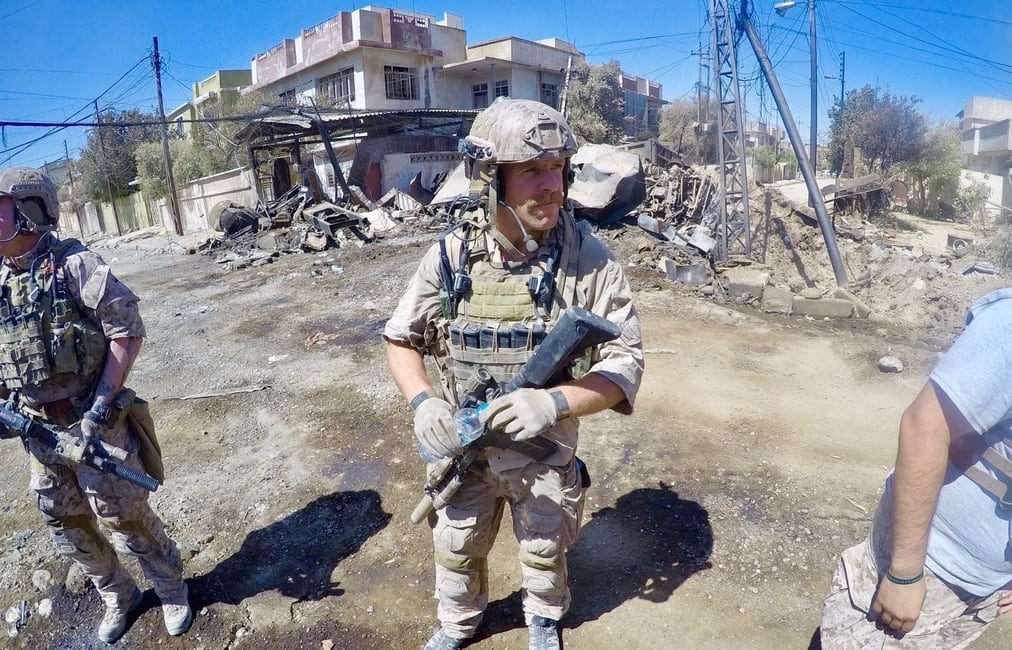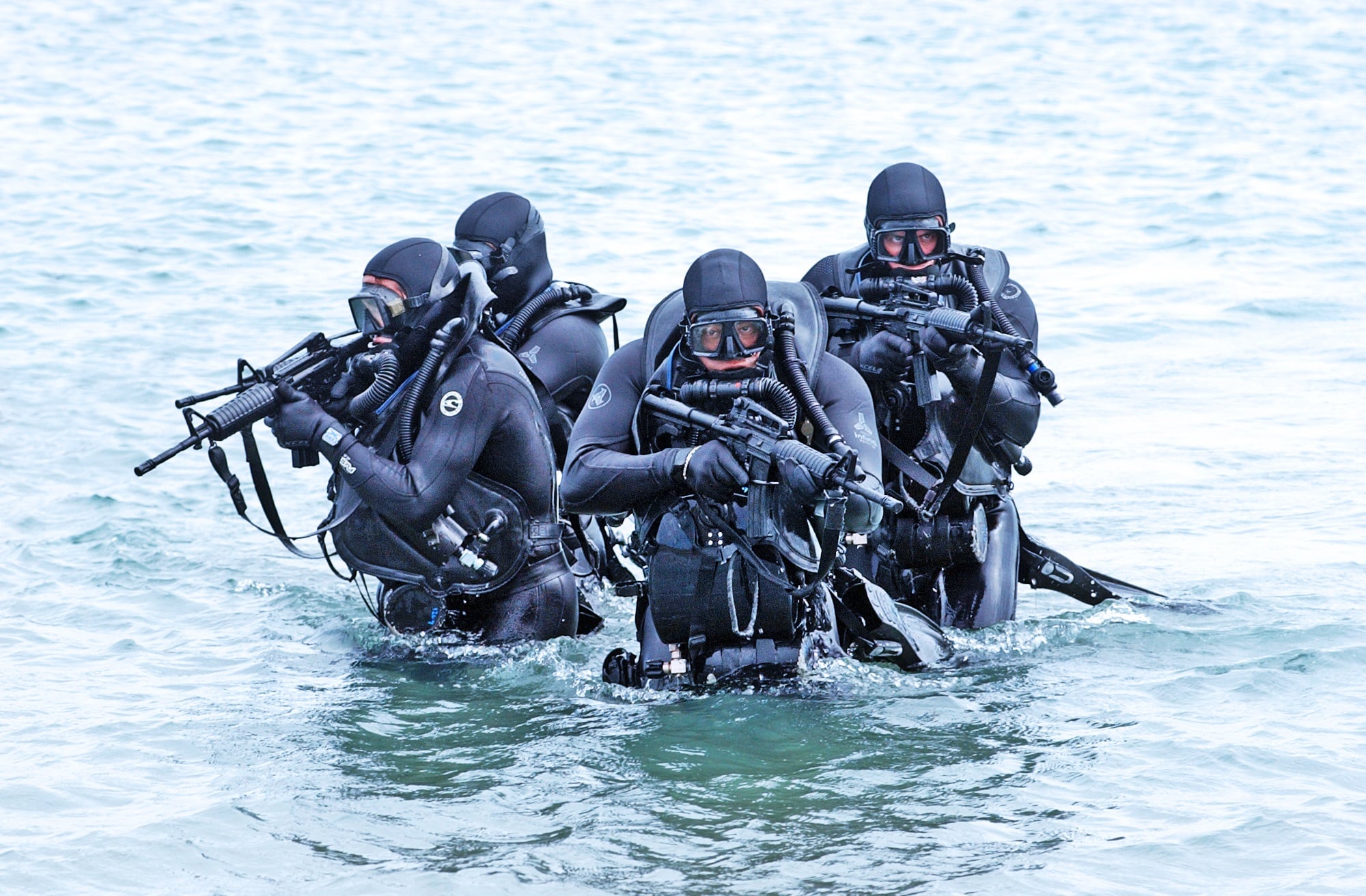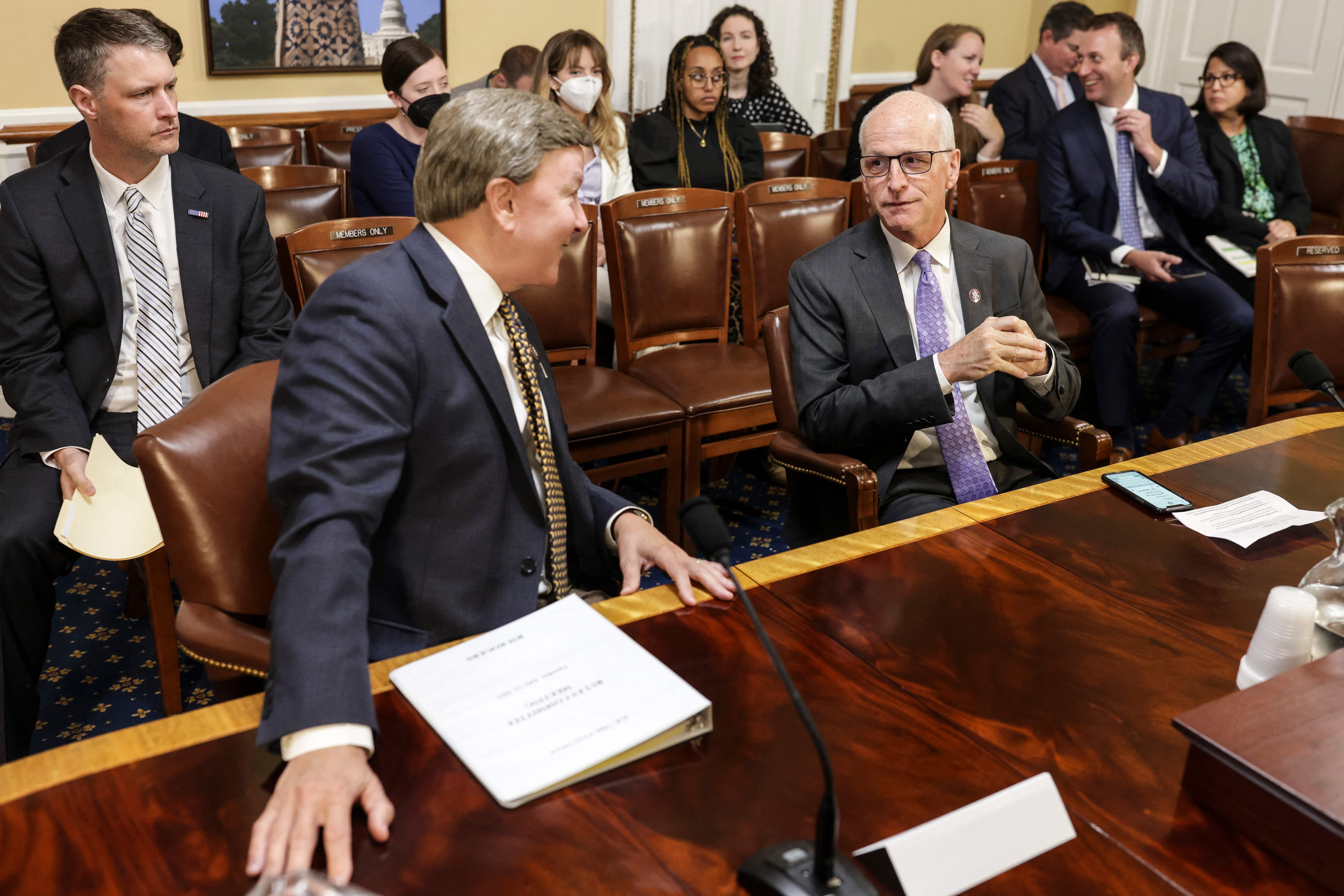SAN DIEGO —The Navy’s top SEAL is probing what went wrong with his service’s premier special warfare teams and how he can fix them.
Pointing to a series of high-profile scandals and ongoing war crimes trials, Naval Special Warfare commander Rear Adm. Collin Green told an audience at the U.S. Naval Institute’s West 2019 convention here that he’s commissioned a 90-day review to explore “what we’re doing in the schoolhouse, what we’re not doing, what we’re doing relative to leader development and hard ethical decisions, combat ethics, and seeing if we’re addressing that.”
Green’s statements came after Task & Purpose reporter Paul Szoldra asked what the command was doing to respond to reports of SEALs failing urinalysis tests for drug abuse and being charged for war crimes.
The SEAL leader was participating in a panel about military readiness and the session’s moderator — retired Vice Adm. James Zortman — tried to shoot the question down, but Green agreed it was an important issue for his community of special operators and he didn’t flinch at addressing it.
“We are looking hard, as a learning organization, to self-assess, to see if we are assessing and selecting the right people, and are we holding them accountable,” Green said.
Green said that the review will include “hard discussions,” and he pointed to a grueling tempo of operations SEALs have faced since Sept. 11, 2001.
“We’ve been at war for 17 years,” he added.
RELATED

Green commissioned the assessment on Jan 1. in the wake of a November memo from the head of U.S. Special Operations Command, Army. Gen. Raymond A. Thomas III.
Green will report the findings to Thomas in March, according to Naval Special Warfare spokeswoman Cmdr. Tamara Lawrence.
In his memo, Thomas called on members of the U.S. military’s shadowy special forces community to “operate with the highest standards of ethics and honor.”
“We routinely operate around the world in environments where exposure and temptations to be influenced by local norms are a reality,” Thomas wrote. “Never give the American people or our allies cause to doubt our will to execute at the highest standards of tactical and moral excellence.”
Thomas urged them to continue serving “with honor and integrity” both “on and off the battlefield.”
RELATED

Green’s study is being conducted in the midst of ongoing war crimes trials targeting SEALs who fought in Afghanistan and Iraq, including the high-profile prosecution of Chief Special Warfare Operator Edward “Eddie” Gallagher.
Authorities accuse Gallagher of fatally stabbing a wounded teenage Islamic State prisoner of war outside the Iraqi city of Mosul in 2017 and shooting at innocent civilians with his sniper rifle.
Gallagher’s commanding officer at SEAL Team 7’s Alpha Platoon, Lt. Jacob X. “Jake” Portier, also faces charges for allegedly trying to conceal the purported war crimes.
Both men have denied wrongdoing.
Four SEALs stationed at Village Stability Platform Kalach in the Chora District of Afghanistan’s Uruzgan Province also have been charged in San Diego for their alleged roles in the May 31, 2012 beating of bound prisoners at the hands of Afghan Local Police militiamen, with one detainee possibly dying after the interrogations.
Like Portier and Gallagher, they insist they’re innocent, too.
Prosecutors also say a pair of Navy SEALs are linked to the June 4, 2017, death of Army Special Forces Staff Sgt. Logan Melgar at his residence in Bamako, Mali.
SEALs also have been dogged by reports of rising drug abuse problems in their teams and the early 2018 conviction of Special Warfare Operator 1st Class Gregory Kyle Seerden for recording images of child sexual abuse on his cellphone.
Geoff is the managing editor of Military Times, but he still loves writing stories. He covered Iraq and Afghanistan extensively and was a reporter at the Chicago Tribune. He welcomes any and all kinds of tips at geoffz@militarytimes.com.





